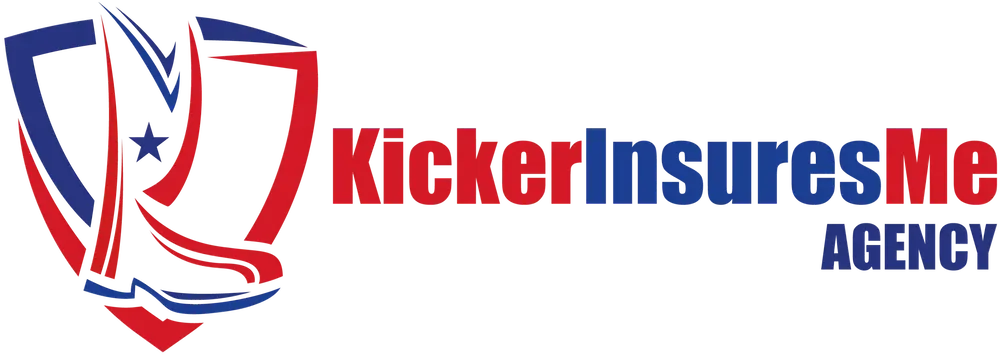Why You Should Seriously Consider That Rental Care Coverage
 Does your personal auto insurance cover rental cars? When you’re renting a car, it’s easy to assume that your existing policy has you covered. But the reality can be more complicated – and costly.
Does your personal auto insurance cover rental cars? When you’re renting a car, it’s easy to assume that your existing policy has you covered. But the reality can be more complicated – and costly.
The last thing anyone wants is to be responsible for a rental car’s damage or theft. Before signing on the dotted line, it’s crucial to understand how rental car coverage works and how much of the risk you’re truly taking on.
What about that loss damage waiver the rental company offers? Does it really make sense to buy extra coverage when you already have auto insurance? Getting ahead of these questions will give you peace of mind and ensure you’re not caught off guard by any unexpected expenses.
Let’s dive into what you need to know before you rent your next vehicle.
The Basics of Rental Auto Insurance
When renting a car, you’ll often be presented with a range of insurance options, and it’s easy to feel overwhelmed. The most common choices include the rental car company’s insurance and your own personal or business auto insurance. However, the coverage these provide isn’t always as straightforward as it seems.
Your personal auto insurance might cover you when you’re renting a car, but there can be gaps. For example, it typically won’t protect you from all the potential costs associated with an accident or theft. Rental car companies are quick to point out these gaps, offering their own policies like the rental car damage waiver to fill in the blanks.
What Is a Loss Damage Waiver (LDW)?
A loss damage waiver (LDW) is an option offered by most rental car companies that essentially waives your financial responsibility if the car is damaged or stolen. Rather than filing a claim with your personal auto insurance, the rental company’s waiver covers the cost, sparing you the hassle of dealing with your insurer or facing increased premiums after an accident.
In practical terms, the LDW can be a lifesaver. It usually covers:
- Damage to the vehicle
- Vandalism
- Theft
Even incidental damage, like dents and scratches, is often included. The convenience of an LDW is hard to ignore, especially for those who don’t want to risk their personal insurance taking a hit.
But convenience comes at a cost-usually a daily fee that adds up quickly, especially during longer rentals. Despite that, the peace of mind knowing you’re off the hook for costly repairs can make it worth considering.
Diminished Value: A Hidden Risk
Diminished value is an often overlooked aspect of renting a car. In simple terms, diminished value refers to the loss of a car’s resale value after it’s been damaged and repaired.
Even if the vehicle is restored to perfect working condition, it’s still worth less than it was before the accident. The catch? Most personal auto insurance policies don’t cover this loss in value.
Rental companies, however, are well aware of diminished value, and they can charge you for it. The frustrating part is how subjective the calculation can be. Rental agencies might assign an arbitrary number based on their own assessments, leaving you on the hook for an amount that seems out of proportion to the damage.
What’s Covered and What’s Not With a Loss Damage Waiver
Generally, an LDW covers physical damage to the rental vehicle. If the car is stolen or damaged in a collision, the waiver typically ensures you won’t be held financially responsible for the repair or replacement costs.
However, the coverage has limits. While the LDW often protects you from paying for damages, it doesn’t cover every possible scenario. For example, if you were driving recklessly or under the influence of alcohol, the waiver would likely be void, leaving you liable for the damages.
Similarly, an LDW usually won’t cover personal items stolen from inside the vehicle, nor will it apply if you allow an unauthorized driver to operate the car.
One common misconception is that personal auto insurance will always cover damages when renting a car. While it’s true that personal policies often extend some level of coverage, they may not protect you from the same risks.
Is the Loss Damage Waiver Worth the Cost?
At first glance, the daily charge for a rental car damage waiver may seem steep, especially if you’re renting for an extended period. However, when you weigh the potential out-of-pocket expenses if something goes wrong, the cost of an LDW can start to make more sense.
Let’s say you’re in a minor fender bender while renting a car. Without an LDW, you could be responsible for:
- Repair costs
- Towing fees
- The diminished value of the vehicle
In contrast, with an LDW in place, those worries are wiped away. For a relatively small daily fee, you remove the risk of being stuck with a large bill for damages or diminished value. Depending on the length of your rental, the cost of the waiver might be a small price to pay for the reassurance it provides.
How Long Are You Covered, and Who Is Protected?
The duration of coverage under a loss damage waiver typically lasts as long as the rental agreement. However, it’s important to read the fine print, as the coverage can vary depending on the rental company and the type of car you’re renting.
One key consideration is who is covered by the waiver. In many cases, the LDW only applies to drivers listed on the rental agreement, so if you plan to share the driving responsibilities, you’ll need to ensure additional drivers are authorized. Failing to do so could void the waiver entirely, leaving you responsible for any damages caused by an unlisted driver.
Be Prepared, Not Surprised
When it comes to renting a car, relying solely on your auto insurance can leave you exposed to hidden risks like diminished value or loss of use. A loss damage waiver offers crucial protection and peace of mind that your personal policy might not cover.
At Kicker Insures Me, we go the extra mile to ensure you’re fully informed about your coverage options. Our independent insurance team customizes solutions that fit your needs and budget, so you’ll always feel secure – whether on the road or at home.
Ready to make smarter insurance decisions? Let’s start the conversation today. – call or text us at (281) 487-9686 or start your free quote online today.
